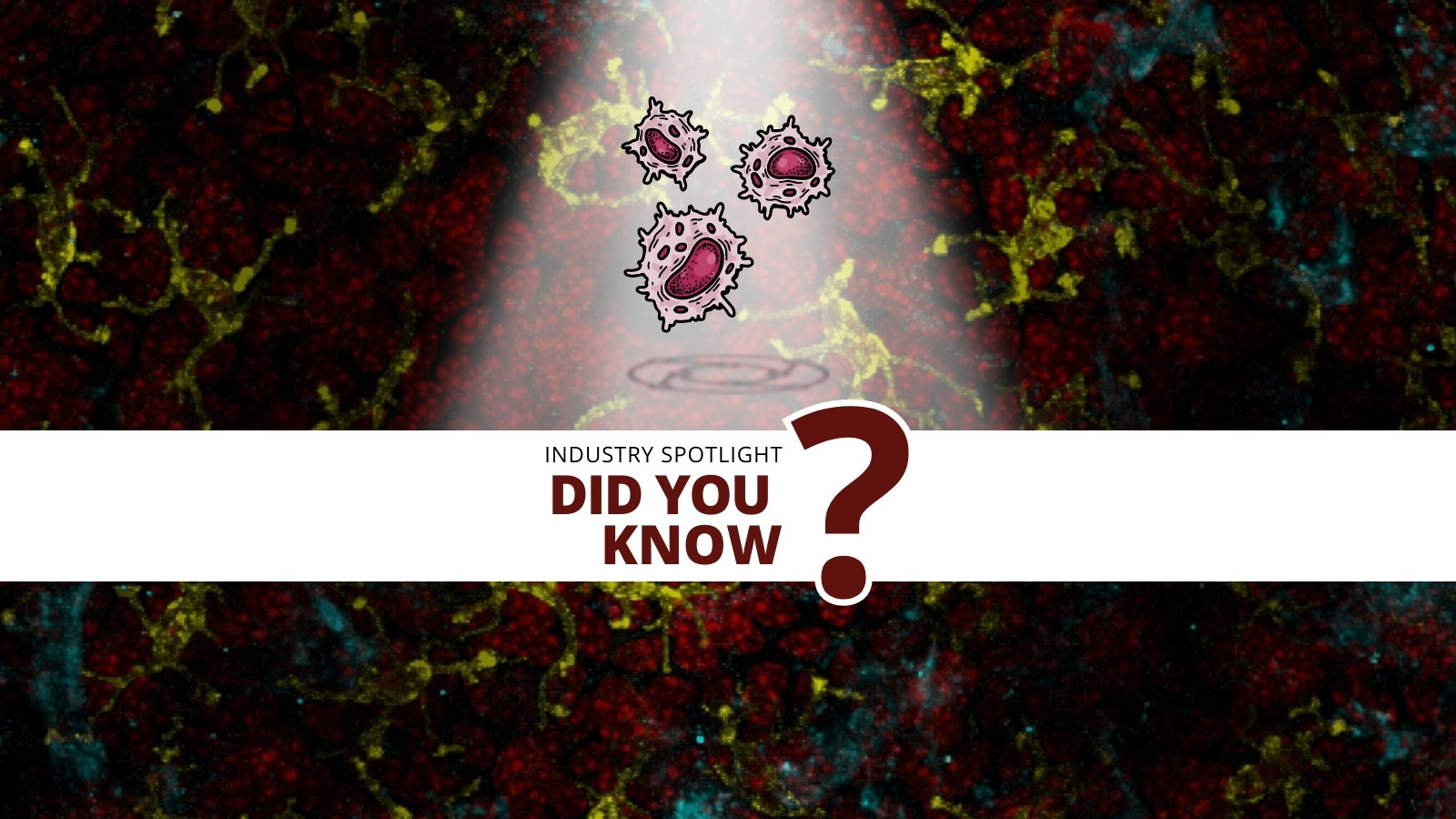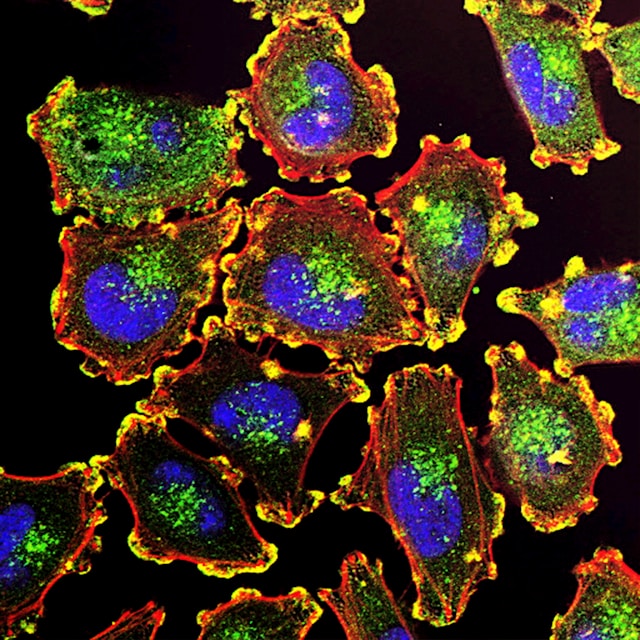Immune Cell Types: Their Opportunities for Therapeutic Use in Oncology

Featured image credit (background image): NIAID, CC BY 2.0
The immune system consists of a vast array of cell types that all work together to keep out pathogens and patrol the body for developing cancer cells. Here we take a look at a few immune cell types, how they help prevent cancer, and the opportunities to harness them for therapeutic effect.
T Cells
T cells are integral to the healthy functioning of the immune system, both helping and directly causing the death of pathogens like cancer, viruses, and bacteria. After a T cell is borne from the bone marrow, it migrates to the thymus, where they differentiate into one of many T cell types. Perhaps two of the most important of these substrata are the CD4+ (helper) and CD8+ (killer) T cells, their respective numbers referring to the cell-surface glycoprotein they present.
T cell-based therapies, such as adoptive cell transfer (ACT) and chimeric antigen receptor (CAR) T-cell therapy, have shown remarkable success in treating certain types of cancer. These therapies involve modifying or engineering a patient's T cells to enhance their cancer-targeting abilities.
CAR T Cell Therapy:
NK Cells
NK stands for ‘natural killer’ which goes some way toward explaining the purpose and function of these lymphocytes. NK cells have the ability to kill pathogens without a major histocompatibility complex (MHC) class I marker, but unlike cytotoxic T cells, they do not need to be activated in order to do so. NK cell-based therapies are being investigated for their potential in cancer treatment. Strategies include adoptive transfer of ex vivo expanded NK cells and enhancing NK cell activity through the use of cytokines, antibodies, or immune checkpoint inhibitors.
The therapeutic potential of NK based therapies:
B Cells and Monoclonal Antibodies
B cells are a vital part of the adaptive immune system due to their ability to produce antibodies which bind to pathogens and neutralise them. Although these lymphocytes are not themselves commonly used therapeutically, monoclonal antibody therapy is a widely used therapeutic approach in oncology. It involves using laboratory-produced antibodies that can target specific cancer-related antigens. These antibodies can interfere with cancer cell signalling, promote immune-mediated killing, or deliver drugs directly to cancer cells.
More on antibody-based therapies:
See the upcoming events in Oxford Global’s Immuno series here.
Get your weekly dose of industry news?here?and keep up to date with the latest?‘Industry Spotlight’ posts.?For other Immuno content, please visit the?Immuno Content Portal.







